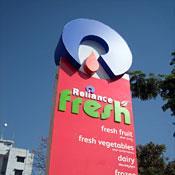
The arrival of modern retail in India has had an impact on the country's small-scale, independent grocers (kiranas), reports the Economic Times of India.
A recent study by market research firm Nielsen found India's neighbourhood stores are growing their sales at a much lower rate than modern trade since 2006, when most large-scale chainstores entered the market.
Sales at modern stores grew 34 per cent in 2006 and 29.3 per cent in 2010. Traditional stores could increase sales only 1.5 per cent in 2006, but improved the growth rate to 6.2 per cent last year.
The data comes at a time the government finally moves closer to allowing multinational retailers such as Wal-Mart and Carrefour to open shops in the country.
Those who oppose such a move, including the Left and the BJP, argue it will impact the livelihood of small shopkeepers and traders. But the thinking in government circles is that this will help check rising food prices by removing several layers of middlemen between farmers and consumers.
Organised retail accounts for less than 10 per cent of India's retail market estimated at close to US$400m. The Boston Consulting Group estimates the size of organised retail market at US$28bn and expects it to grow nine times to US$260bn in 10 years.
'The Indian Shopper has discovered modern retail and is increasingly shopping there,' Nielsen's executive director for retail and shopper practice Dipita Chakraborty told the Economic Times. This trend is fuelled by the growth in number of modern stores, she added.
Nielsen's latest study shows that the frequency of consumers going to large stores has increased. More than 37 per cent of consumers visited modern trade stores every month this year, up from 30 per cent last year.
Reliance Retail president Bijou Kurien attributes this to more options that big retailers offer to consumers. 'In mom-and-pop stores, customer has to be very specific with what they want, but they can get more options in a modern store, and that's where we are gaining,' he told the Economic Times.



